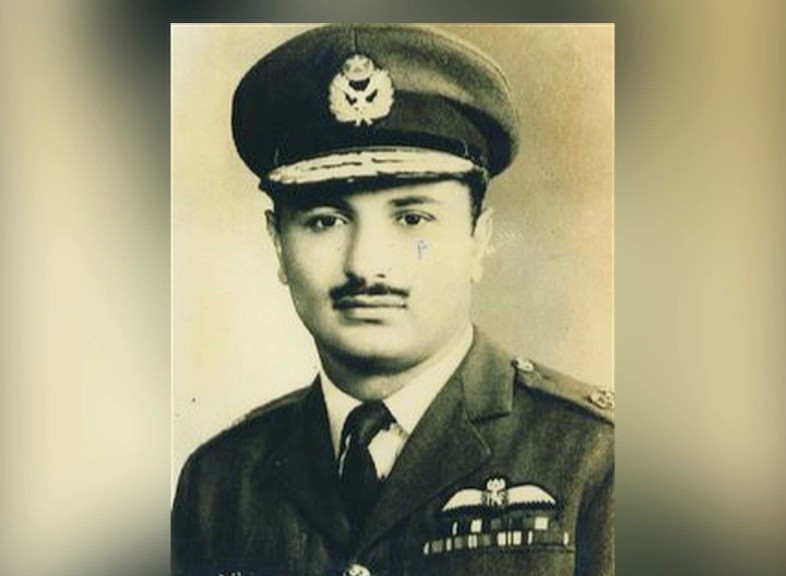
Though Asghar Khan could not achieve his political aspirations, his principled stance on significant national issues will always be respected

With the death of Air Marshal Asghar Khan, we have lost a military man who over time became a committed democrat. From a fiery hawk of 1977 who wrote a letter to the army chief to intervene, he became a peace-loving leader who filed cases against the ISI funding to politicians.
He was once a top crowd-puller, a charismatic leader who headed a popular political party, Tehrik-e-Istiqlal. But, during his last years, he shrunk to be a philosophical ideologue who lived in his quiet abode in Abbottabad. He left practical politics many years ago, and annexed his party with Imran Khan’s Tehreek-e-Insaf.
Nawaz Sharif, Javed Hashmi, Khursheed Kasuri, Akbar Bugti and many other leading politicians of past and present were members of his party. His aggressive speeches -- like his 1977 speech when he asked Ziaul Haq to hang Zulfikar Ali Bhutto by Kohala Bridge -- made him the most popular opposition leader. But his stiff principles impeded his way to power.
Gen. Ziaul Haq wanted Asghar Khan to be his prime minister. Khan rejected Zia’s offer and opted to oppose him by joining the Movement for Restoration of Democracy (MRD). His decision led him to house-arrest that blocked his way to the PM House.
He had the distinction of being invited to the state visit of Iran, along with his party delegation, which gave the impression that he would be the next prime minister of Pakistan. Mohammad Reza Pahlavi and his country Iran back then were considered a bogey of the US in the region, and Asghar Khan’s state visit meant the super power endorsed his premiership.
Like a true intellectual, he acted on what he thought was right. He never feared the public opinion. He went to Kabul to meet Afghan President Dr Najibullah at the height of tensions with Afghanistan. He was called ‘Brutus’ then as he opposed the state narrative and campaigned for friendship between Pakistan and Afghanistan.
Read also: Icon of politics
Much earlier in the 1940s, at the start of his career in Royal Indian Air Force, he refused to drop bombs on the revolting Pir of Pagaro’s areas. The British might have punished him but the creation of Pakistan saved his
Another example of his intellectual honesty is to demand the acceptance of Bangladesh soon after its breakup from Pakistan. The PPP termed him a traitor but Khan stood his ground.
Asghar Khan came into politics during 1960s. He, alongside Nusrat Bhutto, campaigned for the release of Z.A. Bhutto who was incarcerated then. Interestingly, when Bhutto came out of prison, he realised the political potential of Asghar Khan and announced in a satirical tone that Asghar Khan had no place in politics because the real leader was free. This rivalry between the two went on -- Bhutto called him "Aaloo Khan", Khan demanded Bhutto’s hanging.
The two Khans of Pakistani politics, Imran Khan and Asghar Khan, had much in common -- both financially clean and obstinate in politics. Both Khans, however, are different on the marriage issue. Asghar Khan married only once throughout his long life and the fortunate lady, Amina, is said to be a relative of Begum Maulana Maududi.
Asghar Khan regularly held elections within the Tehrik-e-Istiqlal which led to the weakening of the party over the years because, after every party election, a splinter group losing the contest would deflect.
This scribe got many chances to meet Khan, especially during his direct contest with Nawaz Sharif from NA-95 during the 1990 elections. He was soft spoken, serious and philosophical. The mysterious death of his son Omar Asghar Khan affected him in old age. He saw Omar as his hope.
Though Air Marshal Asghar Khan could not achieve the goal of premiership, his principled stance will always be respected in the political history of Pakistan.